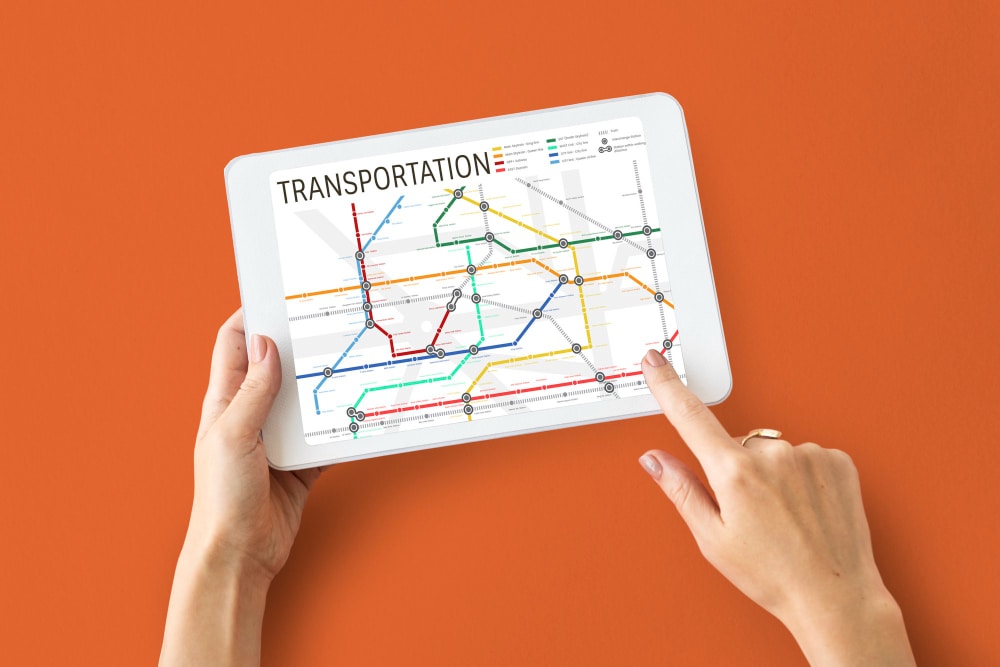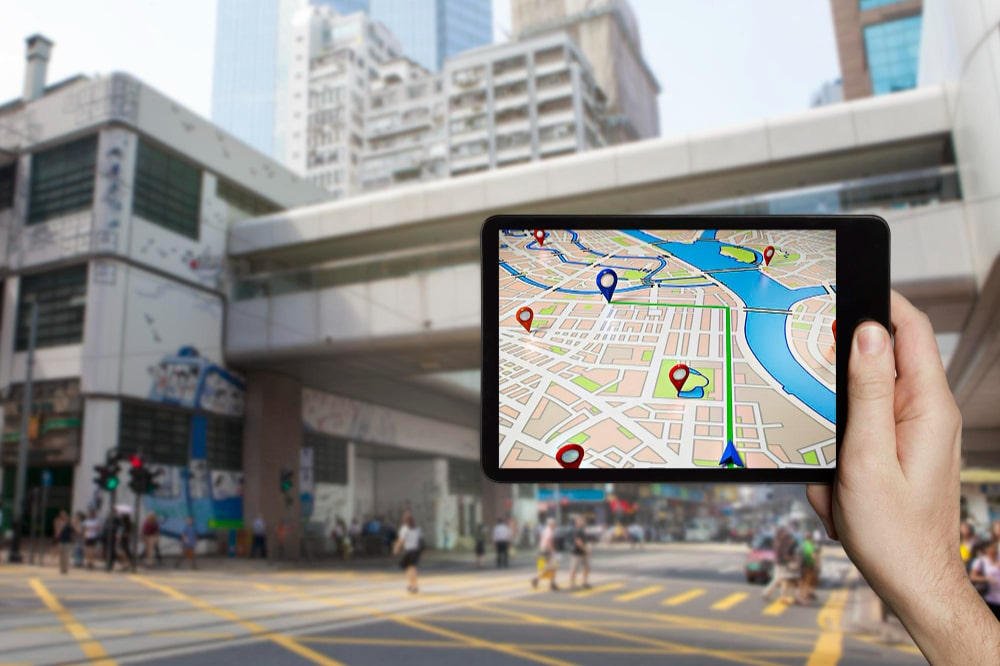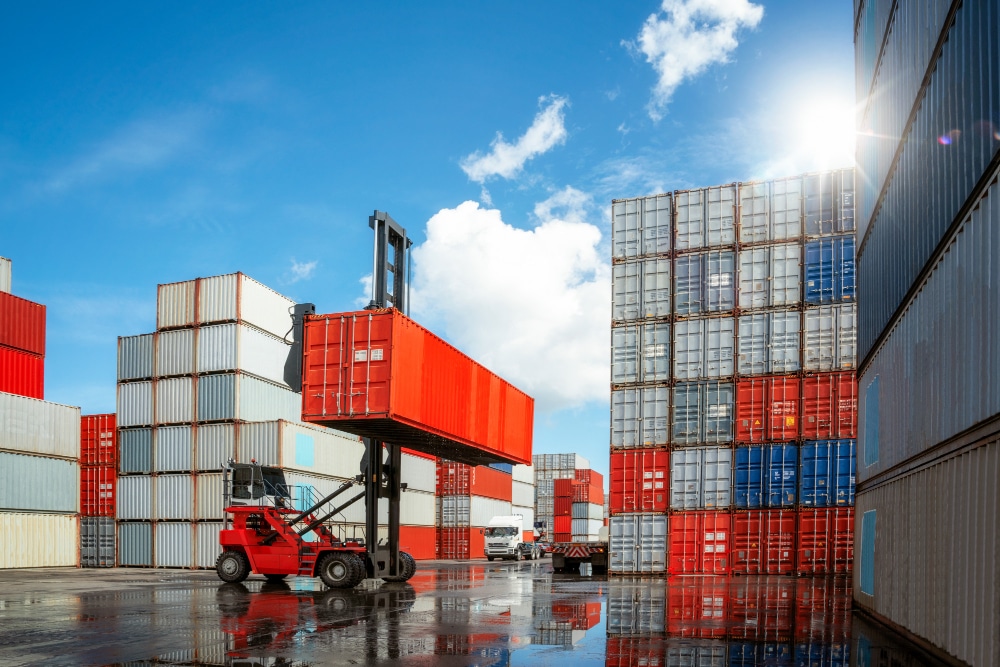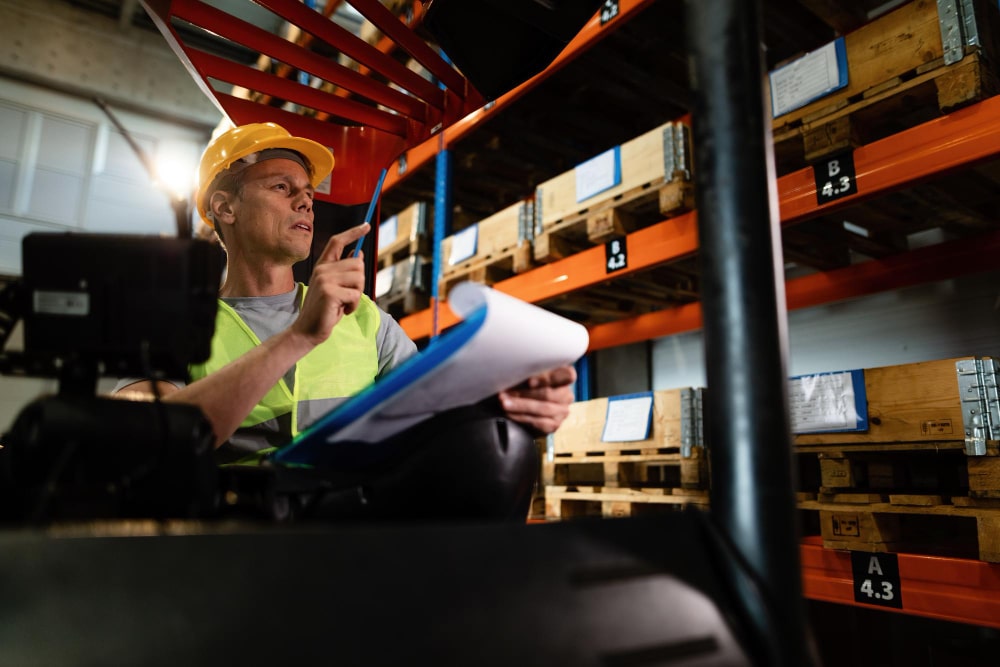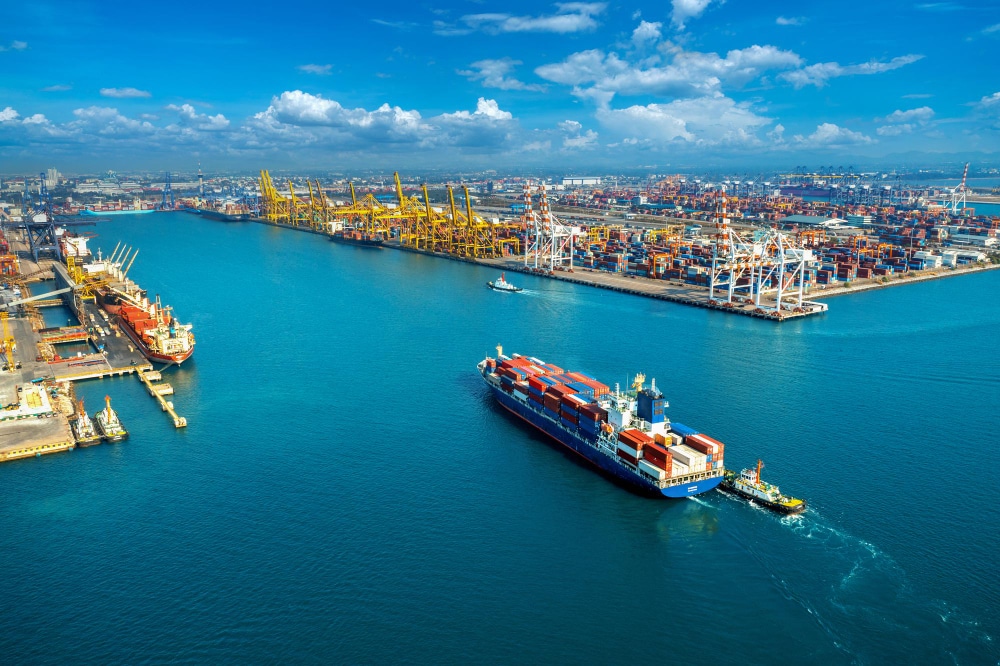In an era where environmental concerns are at the forefront of global discussions, businesses worldwide recognize the urgency of transitioning to sustainable practices. Logistics- the backbone of supply chains- is one area that has gained significant attention in recent years.
Green logistics, also known as sustainable logistics or eco-logistics, focuses on minimizing the negative environmental impacts associated with transportation, warehousing, and distribution processes.
In this blog post, we will delve into green logistics, its key objectives, environmental challenges in traditional logistics, the benefits of adopting sustainable practices, and strategies to revolutionize supply chains while benefiting the planet.
What is Green Logistics?
Green logistics, also known as sustainable logistics or eco-friendly logistics, is a concept and approach that focuses on reducing the environmental impact of logistics and supply chain management processes.
Integrating eco-friendly practices and technologies to minimize carbon emissions, energy consumption, waste generation, and other negative environmental effects associated with transportation, warehousing, packaging, and distribution operations.
The primary goal of green logistics is to achieve sustainability by balancing economic efficiency with ecological responsibility. While traditional logistics often prioritize cost and speed, green logistics places equal emphasis on environmental preservation and social responsibility.
It seeks innovative solutions to address environmental challenges while ensuring the efficient flow of goods from suppliers to customers.
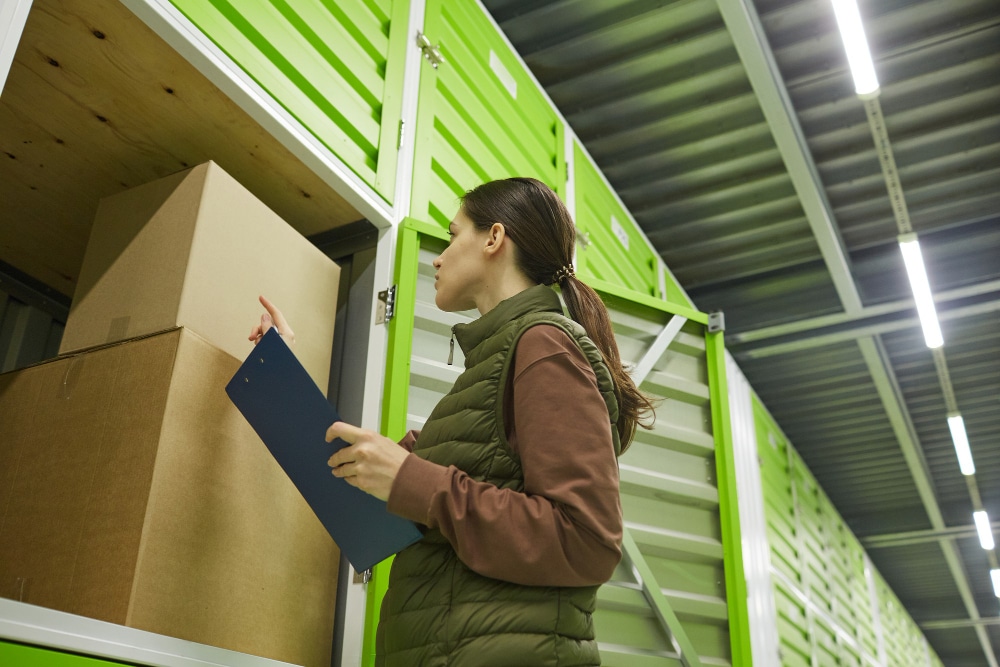
Key Objectives of Green Logistics
Reduce Carbon Emissions
One of the primary objectives of green logistics is to minimize carbon emissions associated with transportation and distribution activities.
The transportation sector is a major contributor to greenhouse gas emissions, particularly carbon dioxide (CO2) from burning fossil fuels. Green logistics seeks to address this issue by promoting cleaner and more energy-efficient transport options, such as electric or hybrid vehicles, biofuels, and compressed natural gas (CNG) vehicles.
Optimizing route planning to reduce travel distances and idle times can further reduce fuel consumption and emissions.
Promote Energy Efficiency
Green logistics aims to reduce energy consumption throughout the supply chain. Energy-intensive operations, such as refrigeration in warehouses and long-haul transportation, heavily rely on fossil fuels, exacerbating environmental problems.
To promote energy efficiency, companies can implement energy-saving measures in warehouses, such as using LED lighting, smart HVAC systems, and motion sensors to minimize electricity usage.
Investing in renewable energy sources, such as solar panels or wind turbines, for powering warehouses and charging electric vehicles is also part of the green logistics approach.
Responsible Packaging
Sustainable packaging is a crucial aspect of green logistics. The demand for packaging materials, especially paper, and cardboard, contributes to deforestation, leading to habitat destruction and biodiversity loss. Green logistics seeks to address this challenge by adopting eco-friendly packaging solutions.
Businesses can explore alternatives to single-use plastics, such as biodegradable, compostable, or recyclable materials. Moreover, encouraging customers to return or recycle packaging can further reduce waste and promote a circular economy.
Waste Reduction
Green logistics aims to minimize waste generation across the supply chain. This includes waste from excessive packaging, damaged goods, and inefficient processes.
Adopting lean principles in inventory management can help optimize stock levels, reducing the need for excess inventory and decreasing waste. Implementing efficient product return processes and refurbishing or recycling returned items can also reduce waste.
Water Conservation
Water pollution is a pressing concern in logistics due to handling hazardous materials and spills. Green Logistics seeks to implement measures to prevent water pollution and promote responsible water usage.
Companies can invest in training and equipment to safely handle hazardous materials, implement spill response plans, and adopt water-efficient practices.
Noise Pollution Reduction
The transportation and warehousing operations in logistics can contribute to noise pollution in urban areas, impacting the well-being of nearby communities.
Green logistics advocates for adopting quieter and eco-friendly alternatives, such as electric trucks and noise-reducing equipment, to minimize noise pollution.
Related Article: From Trash to Treasure: The Lucrative World of Recycling Business

Environmental Challenges in Logistics
Before exploring the strategies for greener logistics, it is essential to understand the environmental challenges associated with traditional logistics. Some key challenges include:
- Increase in Carbon Emissions from Transportation Activities: The reliance on fossil fuel-powered vehicles for transportation leads to significant greenhouse gas emissions, contributing to climate change. According to the International Energy Agency (IEA), the transport sector accounts for around 24% of global energy-related CO2 emissions.
- Energy Consumption and Reliance on Fossil Fuels: Energy-intensive operations, such as refrigeration in warehouses, require substantial amounts of electricity, much of which is generated from fossil fuels. The transportation sector relies heavily on gasoline and diesel derived from fossil fuels for its fleet of trucks, ships, and airplanes.
- Deforestation and Habitat Destruction due to Packaging Materials: The demand for packaging materials, especially paper, and cardboard, contributes to deforestation, leading to habitat destruction and biodiversity loss. The pulp and paper industry, used extensively for packaging, is a significant driver of deforestation in some regions.
- Waste Generation from Packaging, Product Returns, and Inefficient Processes: Traditional logistics often involves excessive packaging, leading to increased waste generation. Moreover, inefficient processes and damaged goods can increase waste production rates, impacting the environment.
- Water Pollution from Hazardous Materials Handling and Spills: Handling hazardous materials during transportation and warehousing can lead to water pollution, impacting ecosystems and human health. Oil spills, chemical leaks, and improper waste disposal are potential sources of water contamination in logistics.
- Noise Pollution from Transportation and Warehousing Operations: The constant movement of trucks and machinery in logistics operations can generate significant noise pollution, affecting the well-being of nearby communities and wildlife.
Related Article: Reverse Logistics: Tips and Strategies for Business Owners
Benefits of Making Your Logistics Greener
Making the shift towards green logistics comes with many benefits for the environment and businesses. Some key advantages include:
Reduced Carbon Emissions
By adopting eco-friendly transportation options, optimizing routes, and implementing energy-efficient practices, businesses can significantly reduce their carbon footprint, contributing to the fight against climate change.
This aligns with global efforts to mitigate the effects of climate change and demonstrates a company’s commitment to sustainability.
Enhanced Brand Reputation and Customer Loyalty
Consumers are increasingly conscious of the environmental impact of their purchases. Companies prioritizing green logistics and sustainability gain a positive reputation, attracting environmentally-aware customers and fostering loyalty.
By aligning with the values of their customers, businesses can build trust and strengthen their relationships with their target audience.
Access to Government Subsidies
Many governments incentivize sustainable practices through subsidies, tax breaks, or grants. Embracing green logistics can open doors to such financial incentives, easing the transition to more eco-friendly operations.
These incentives can support companies investing in sustainable technologies and practices.
Compliance with Environmental Regulations
As governments worldwide tighten environmental regulations, businesses adopting green logistics practices will be better positioned to comply with evolving laws and avoid potential penalties.
By proactively addressing environmental concerns, companies can mitigate regulatory risks and ensure a smoother transition to more sustainable operations.
Competitive Advantage
Green logistics can become a competitive advantage in the market. Consumers become more environmentally conscious and increasingly drawn to companies committed to sustainability.
By differentiating themselves as environmentally responsible organizations, companies can stand out among their competitors and attract a broader customer base.
Positive Impact on Stakeholders
Adopting sustainable logistics practices extends beyond customers; it positively impacts employees, suppliers, investors, and local communities.
It demonstrates a commitment to ethical and responsible business practices, leading to higher employee satisfaction and improved stakeholder relationships.
Additionally, suppliers and investors may be more inclined to collaborate with environmentally responsible companies, positively impacting the supply chain.
Related Article: What Is Carbon Neutral Shipping? The Complete Guide
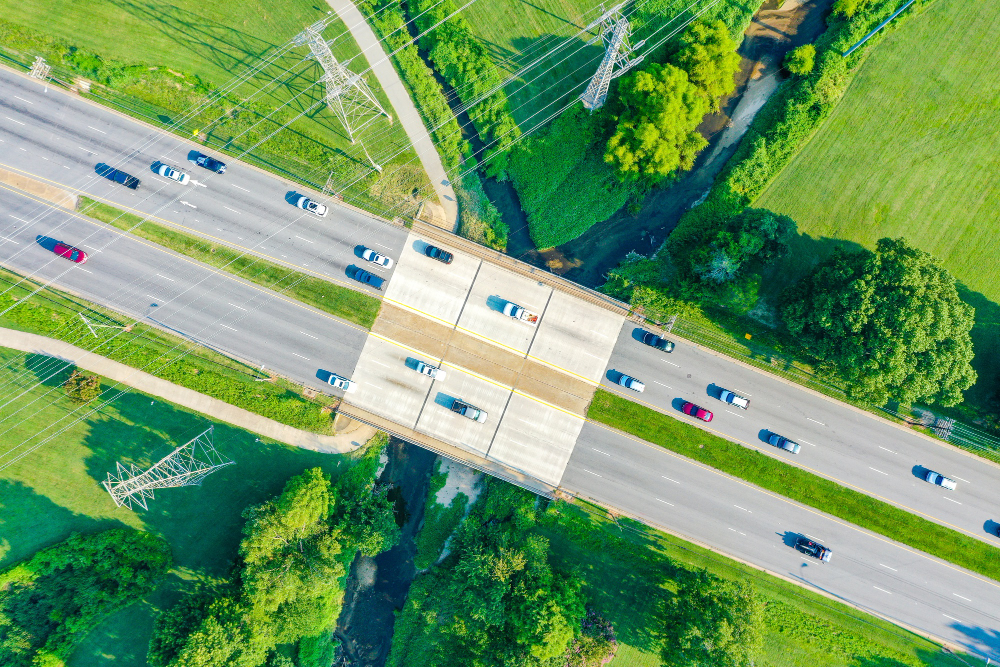
Strategies for Sustainable Logistics
Embracing green logistics involves adopting various strategies that contribute to the overarching goal of sustainability. While each company’s approach may vary based on its unique challenges and opportunities, some of the key strategies include:
- Electric Delivery Vehicles: Transitioning from traditional fuel-powered vehicles to electric or hybrid delivery vehicles significantly reduces emissions and air pollution associated with logistics operations. Electric vehicles (EVs) produce zero tailpipe emissions, making them ideal for urban deliveries and last-mile logistics.
- Optimizing Route Planning: Efficient route planning minimizes distance traveled, fuel consumption, and greenhouse gas emissions. Advanced logistics software and real-time traffic data can optimize delivery routes for maximum efficiency. Companies can reduce fuel consumption and delivery time by considering factors such as traffic conditions, weather, and customer time windows.
- Energy-Efficient Warehouse Designs: Implementing energy-efficient warehouse practices can help reduce overall energy consumption and operating costs. Energy-saving measures, such as LED lighting, smart HVAC systems, and motion sensors, can be deployed to minimize electricity usage. Using natural light and passive heating and cooling techniques can reduce energy consumption.
- Sustainable Packaging and Materials: Companies can adopt eco-friendly packaging solutions to minimize the environmental impact of their products. This includes using biodegradable, compostable, or recyclable materials for packaging. Businesses can also explore innovative alternatives, such as mushroom-based or edible packaging, offering sustainable and biodegradable options.
- Waste Reduction Policies: Implementing waste reduction policies throughout the supply chain can help minimize waste generation and promote responsible waste management practices. This includes optimizing packaging sizes to reduce excess material usage, encouraging customers to return or recycle packaging, and finding innovative ways to repurpose or recycle waste materials.
- Implementing Lean Inventory Practices: Streamlining inventory management and adopting just-in-time practices can reduce excess stock, reducing waste and the need for extensive storage space. By maintaining efficient inventory levels, businesses can minimize the risk of overstocking and reduce the environmental impact of excess inventory disposal.
- Importance of Sustainable Procurement: Partnering with suppliers prioritizing sustainability and responsible sourcing can help create a more sustainable supply chain overall. Companies can assess their suppliers’ environmental practices, ethical standards, and commitment to sustainability to ensure that the entire supply chain operates harmoniously with green logistics principles.
- Reverse Logistics: Developing efficient processes for handling product returns and recycling materials can reduce waste and maximize the value of returned items. Implementing a well-structured reverse logistics system can ensure that products are refurbished, repaired, or recycled, minimizing the need for landfill disposal.
- Leverage Tech and Real-Time Visibility Solutions: Embracing advanced technology and real-time visibility solutions can help monitor and optimize logistics processes, identifying areas for improvement and enhancing overall efficiency. These solutions can provide valuable data on fuel consumption, delivery performance, and emissions, enabling companies to make data-driven decisions to reduce their environmental impact.
Green Logistics Has Never Been Easier Than with Detrack
When it comes to implementing green logistics strategies, one company that stands out as a leader in the field is Detrack. Detrack provides innovative logistics management software that empowers businesses to optimize delivery operations while minimizing environmental impact.
Detrack’s platform offers route optimization features, allowing companies to plan the most efficient delivery routes, reducing fuel consumption and emissions. Real-time tracking and visibility into delivery operations enable companies to make data-driven decisions that enhance efficiency and reduce waste.
By providing insights into delivery performance, Detrack’s software allows companies to identify areas for improvement and implement strategies to reduce their carbon footprint.


